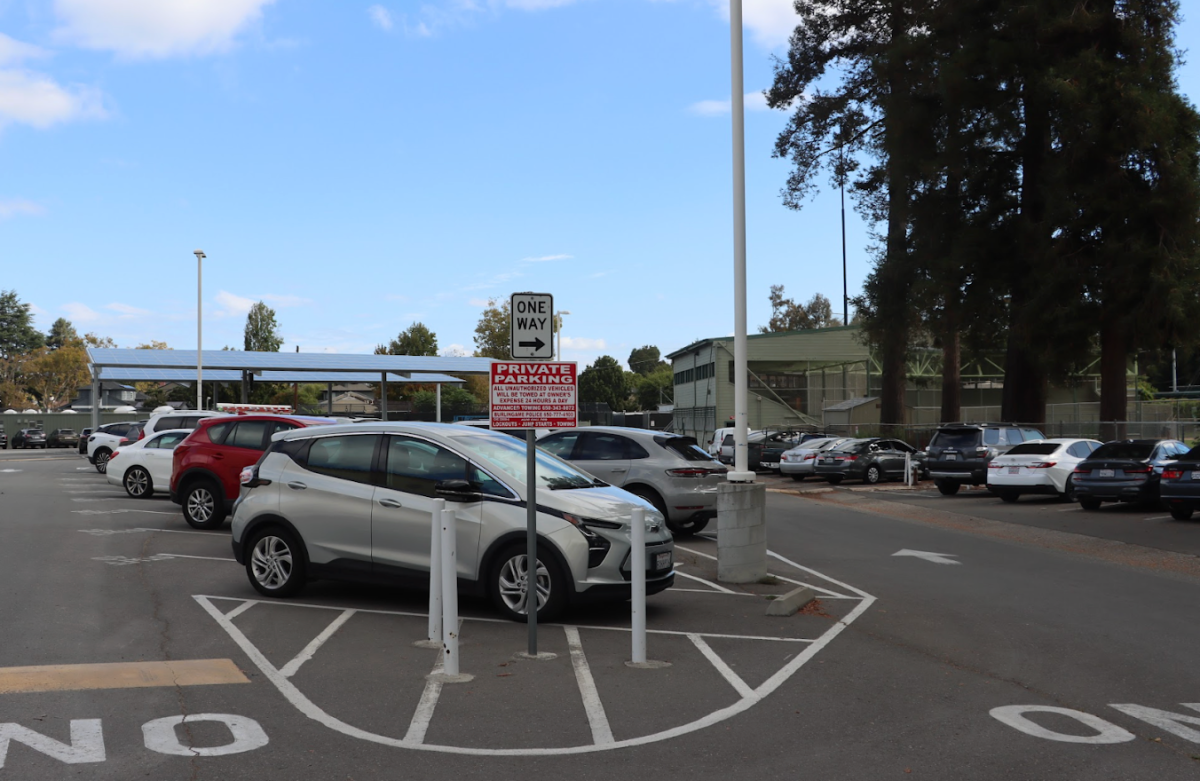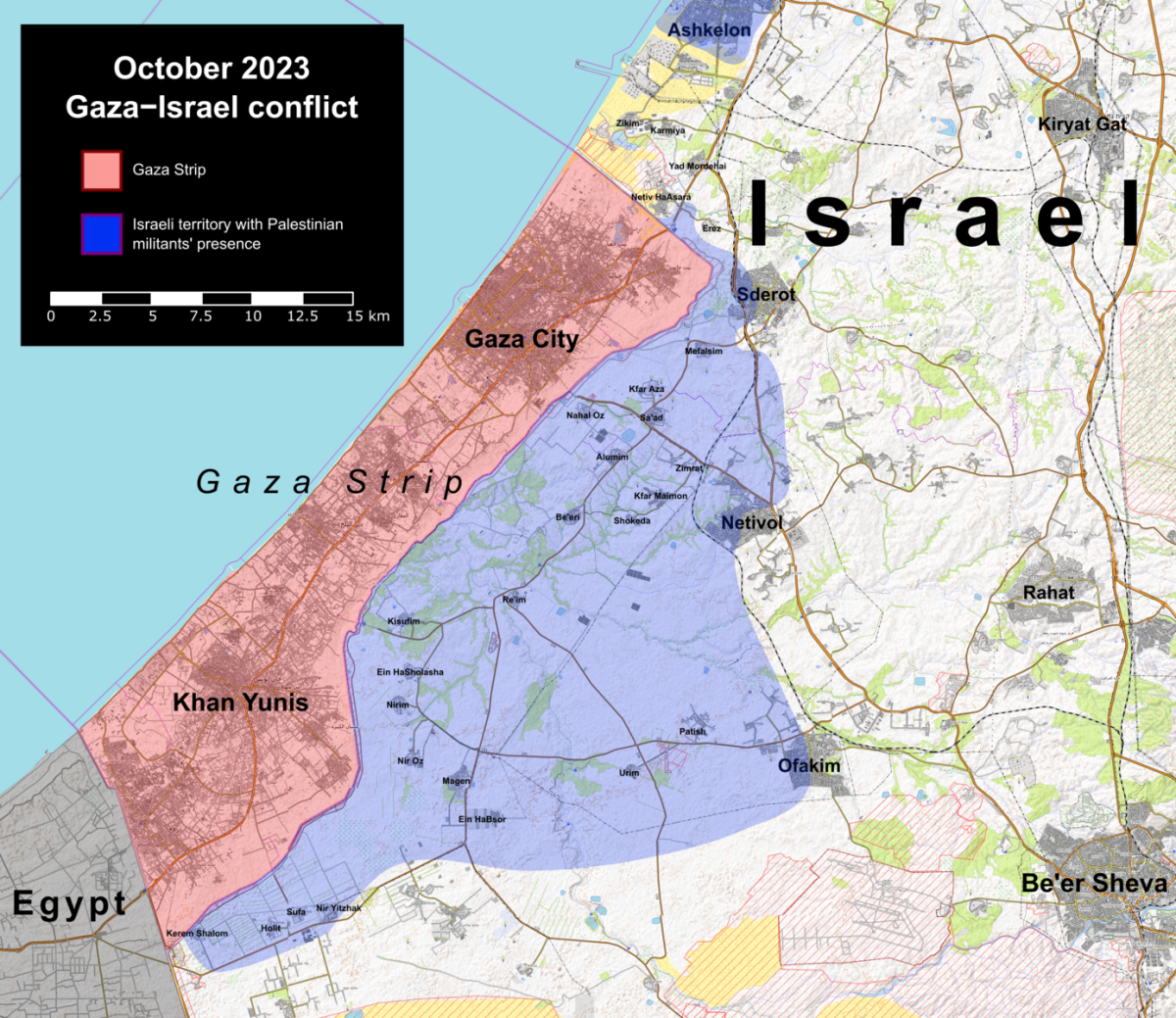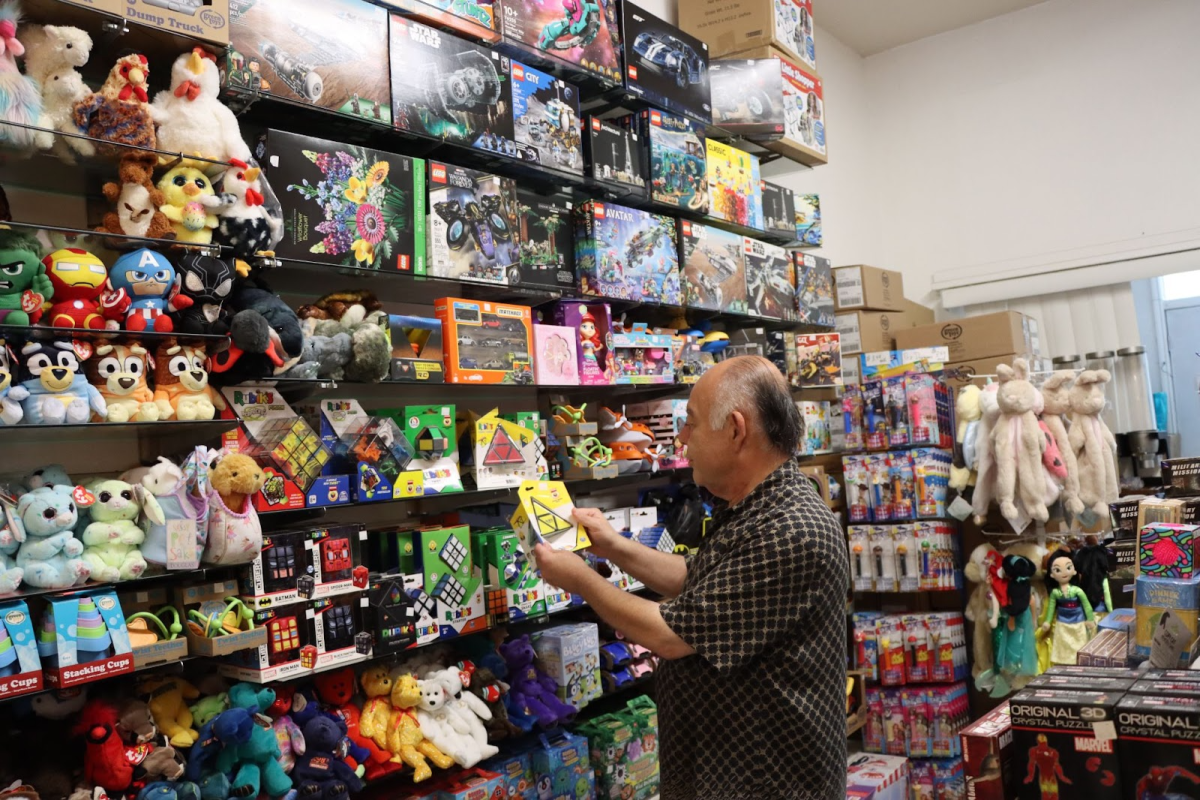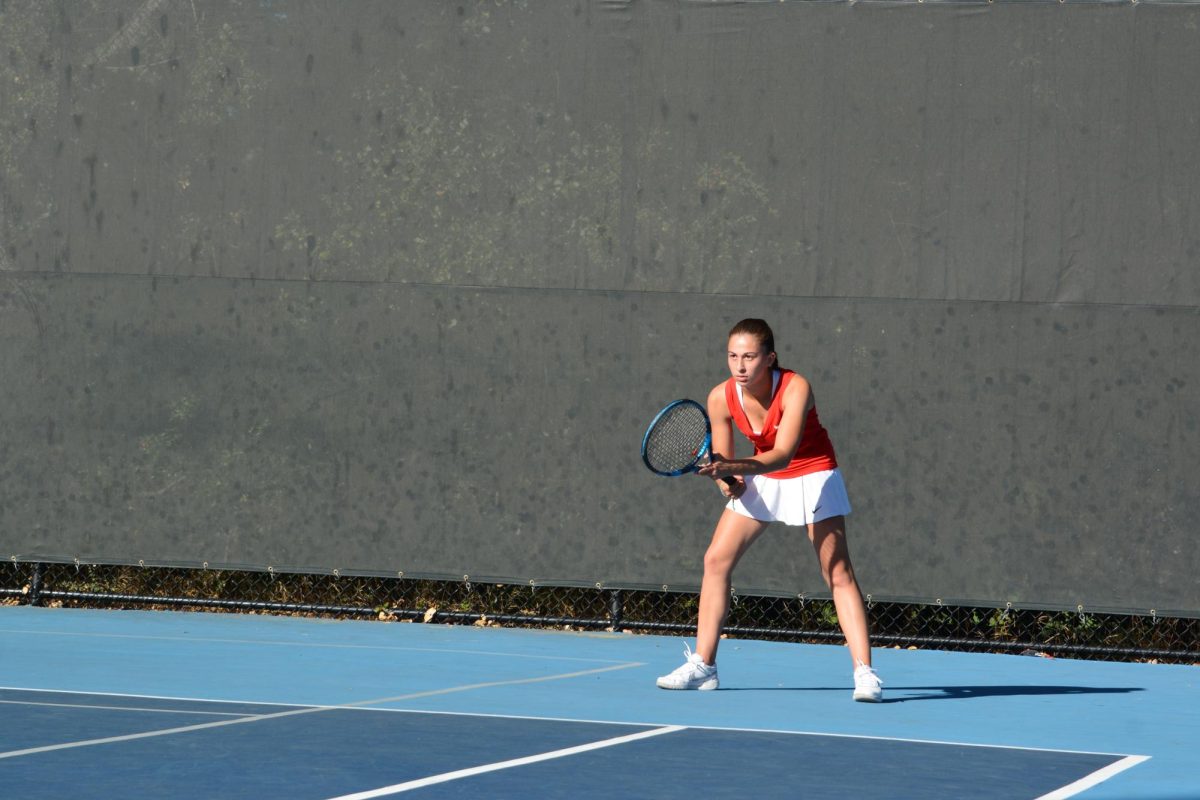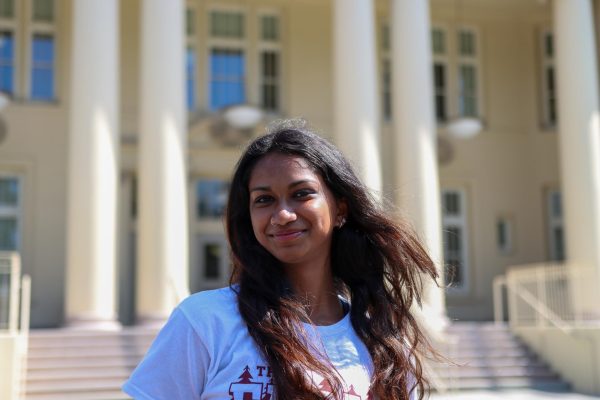On Saturday, Oct. 7, the Palestinian militant group Hamas launched a coordinated surprise terrorist attack on Israel. As the conflict has grown between Israel and Hamas in the intervening days, Burlingame students of both communities have felt the impact of war.
“I urge people to not focus on this as a political issue because it’s truly not,” senior and Jewish club president Nate Teitelbaum said. “It should just be an issue where people can come together and condemn [Hamas] and leave it at that and pray for the victims on every side. Palestinians are going to be undoubtedly affected by this issue too.”
The conflict began when the Palestinian militant group Harakat al-Muqawama al-Islamiya (Hamas) launched a deadly attack on Israel, invading and launching rockets at the country. Israel declared war on Hamas in response. As of Oct. 16, at least 1,900 Israelis have died, while the country’s military reports that another 199 are being held hostage in Gaza. Meanwhile, as of Nov. 6, the Palestinian death toll has risen to over 10,492. In Gaza, women and children comprise over 62% of fatalities.
Even though the war is occurring halfway across the globe, its consequences for the Burlingame community have felt close and real.
“My mom’s aunt is living in Gaza right now. Last time we heard of them, they left their house because it wasn’t safe and they’re hiding in the Greek Orthodox Church. They don’t have electricity or food or water right now, so we can’t contact them,” senior Zaina Michael said.
Likewise, the implications of the conflict extend beyond direct violence. According to the Anti-Defamation League (ADL), as of Oct. 24, antisemitic incidents have seen a nearly 400% increase since the start of the war. In a news release, ADL stated that it recorded 312 antisemitic incidents between Oct. 7 and Oct. 23, 190 of which were directly linked to the Israel-Hamas war. Islamophobia is also on the rise: The Council on American-Islamic Relations (CAIR) reported that it had recorded over 770 complaints, including reported bias incidents from Muslims nationwide, between Oct. 7 and Oct. 25. The organization said in a news release that “the numbers likely do not represent all cases.”
“When there’s something that occurs that negatively impacts Jews in Israel, it’s reflected in the United States because people with anti-Semitic views see what’s going on and they feel prompted, I guess, or incentivized to do the same thing,” sophomore Abby Gorin said.
Burlingame has had a history of anti-Semitic events. Just last year, graffiti of Nazi symbols was found in the boys’ bathroom. Gorin said that she feels afraid to express her Jewish identity because she does not know what response she will receive.
“There have been instances of pretty extreme anti-Semitism at our school, so with the attacks that are going on, I hope that just doesn’t escalate into something greater than it already is,” Gorin said.
Others, like junior Yazan Abutair, cite the media as a prominent factor in the misrepresentation of the war’s outlook. Junior Yazan Abutair notes that Western media strongly under-represents the Palestinian’s standpoint.
“Media in the US portrays Palestinian people as terrorists because of this attack. It’s just people fighting out of open air prison, which is just not fair at all, trying to portray us as terrorists,” Abutair said.
Michael shares this sentiment, urging people to research the history of the issue and to look at the bigger picture rather than only focusing on this latest set of attacks.
“I tell my friends, I encourage people to look beyond the Western media because it’s very biased and doesn’t really show both sides,” Michael said. “I think it’s important to educate yourselves about the situation because this isn’t just something that just happened now. This has been happening for 75 years.”
On Oct. 10, the Jewish Club focused their monthly meeting on the events unfolding in Israel and Gaza and to console one another. Principal Jen Fong was invited to this meeting, where she reassured Jewish students that Burlingame is a safe community for them. Fong has done the same in private conversations with Palestinian and Jewish students and families.
“We take any type of hate very seriously,” Fong said. “I see that Burlingame students in our community are trying very hard to be inclusive and supportive, and to respect that people do have differences of opinions.”
Nonetheless, both Jewish and Palestinian students said they feel silenced and scared, a sentiment that Fong recognized at the Jewish Club meeting.
“I think BHS as a school, they haven’t done the best job at making a safe place for Palestinian students,” Michael said. “I have a few teachers here and there that reached out to me personally, because they know I’m Palestinian. But as a whole, I feel like we’re silenced.”
Oct. 12 Board meeting
Public concerns and opinions were also raised at the Oct. 12 Board of Trustees meeting, specifically in response to a statement released by superintendent Randall Booker.
Twenty members of the public spoke about the conflict, with most voicing anger and disappointment at Booker’s original statement, as he did not name Israel and failed to recognize Hamas as a terrorist organization.
“In your attempt to not offend anyone, you completely shut out your Jewish and Israeli families,” parent Adrian Abrams said to Booker. “All I want is for leadership to exhibit the same compassion for everyone, to really show our children that you care.”
Booker later apologized for his actions and acknowledged that the actions of Hamas were inhumane. Additionally, San Mateo High School junior Sivana Rosenbaum called attention to the lack of education about the topic at our district’s schools.
“When I walked into school, I was alarmed at how normal most people were acting, “ Rosenbaum said. “I felt out of place. Those around me seemed blissfully ignorant of what their Jewish peers were going through.”
Mills High School history teacher Candace Thomas joined the Zoom session and addressed the Palestinian casualties resulting from the war.
“I would like to send my heart out to my Palestinian brothers and sisters, who have family, who are also experiencing violence, who have died in this war,” Thomas said. “I see you, and I stand with you. Free Palestine.”
Ten minutes later, Thomas returned and clarified that she did not condone violence against Jews or violence of any kind, to which multiple public attendees stood up to interrupt as they were upset at Thomas’s earlier remarks. Vice President Ligia Andrade Zúñiga then asked those members to leave the meeting.
Although Booker attempted to keep those members at the meeting, they left the premises during the ongoing crosstalk.
“BHS as a whole needs to educate themselves, not just about one side, which is the Israeli side, but also about the Palestinian side,” Abutair said. “That last board meeting they had was not very fair to us because they started slaughtering our names instead of trying to help us in a way.”
Unifying as a Burlingame community
Michael urges people to refrain from making stereotyping jokes and passing comments. The situation in Gaza is a very real and serious one, and to make light of the situation hurts those who are connected to it, she said.
“When I first hear those [jokes], they try to laugh about it, and at first I was just brushing it off,” Michael said. “Now I just tell them you’re uneducated, please educate yourself. I feel like deep down, the more and more I hear these comments, it doesn’t hurt me like when I first hear[d] it.”
Abutair believes that people need to be more sensitive to the direness of the situation and that they need to be kind rather than making jokes and comments.
“BHS needs to support one another instead of fight one another,” Abutair said. “I also think that these little jokes should not be made either way, because it’s not fair. They’re not seeing what we’re seeing in our eyes. We’re seeing kids on kids getting slaughtered, and they’re not seeing that. They’re seeing [us] as a terrorist.”
To recover from the war’s repercussions, some students have been steering clear of the toxic atmosphere created by social media and searching for community and support among peers.
“Sharing [our] concerns and worries, uniting with the people around us, and having shared experiences is helping [my community] cope because we’re getting through it together,” Gorin said. “Stay close to your family and friends, keep true to your values, and try not to get too deep into social media and negativity.”
Teitelbaum shares great empathy for everybody connected to the war, and he hopes that Burlingame will take this opportunity to come together rather than divide.
“I hope that [the war] does not affect our communities, [or] any other communities,” Teitelbaum said. “I hope people don’t tie this tragedy to the Muslim community and the other Arab communities. I hope there’s no resentment or hatred or bias towards those people at all because they have nothing to do with it. [I want] peace for everyone.”







